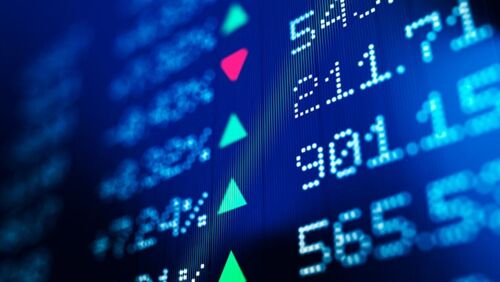What a housing boom and Sydney lockdown could mean for CSR shares
CSR Limited (ASX:CSR) is one of the oldest companies on the ASX having been founded in 1855. Over that time the company, which provides building materials, has grown to more than $2 billion in revenue and $2.6 billion in market capitalisation.
However, in recent times things have been contracting. Sales peaked at $2.5 billion in 2017 and have gradually declined to $2.1 billion in 2021. After adjusting for abnormal items, earnings per share have also fallen from 32 cents to 23 cents.
But in the last 12 months the share price has gone from $3.50 to $6.00. It has retracted to $5.60 in the last month. Why is there so much optimism? While it hasn't yet shown up in the top line revenue figures, a lot of factors are starting to line up favourably for CSR.
Firstly, there is something of a housing boom going on. Fuelled by the government's HomeBuilder incentive scheme demand for building supplies has been strong and will remain so for at least the next two years.
People who submitted their applications before the cut off in April are now able to commence construction up to 18 months later. There were approximately 121,000 applications submitted. These grants will inject a lot of additional funds into the construction industry.
A lot of CSR's building products are used in the later stages of the construction process, further extending the medium-term demand for CSR.
Very low interest rates and rapidly rising house prices are also adding fuel to the fire. The detached housing market is expected to remain strong well into 2022. Also, the shift to working from home is spurring on renovations.
One dark cloud that looms ominously over this is the lockdown in Sydney. There is a reasonable likelihood that this could dampen demand as people tighten their belts due to uncertainty. At the time of writing, construction sites are also closed although there is an expectation that they will soon reopen, at least in some capacity. Of course, the longer this latest COVID crisis drags on the greater the impact will be. This would explain why the share price has retracted from its recent highs.
CSR's diversified product mix also works in its favour. Some of the recent challenges the industry has been facing include shortages of timber frames and qualified tradespeople. This is a positive for CSR's lightweight Hiebel products with some customers opting to build with Heibel blocks instead.
Whilst 70% of CSR's earnings before interest and tax came from the building products business, 21% came from their property business and 9% from the aluminium business.
The outlook for the property segment is strong with large land holdings in western Sydney including a 200ha site at Badgerys Creek adjacent to the Western Sydney airport which is zoned for industrial use.
EBIT for aluminium fell 61% in FY21, largely due to lower prices in the early part of the year, when COVID was at its maximum impact. However, the outlook is looking up with higher prices hedged in for the coming two years.
The upshot of all these factors is that earnings per share is expected to grow at 37% in financial year 2022 and continue growing strongly in the following years.
Earnings are translating into very strong operating cash flow and the balance sheet is solid with $63 million in cash and no financial debt.
Some of this optimism is now factored into the share price with a forward PE ratio of just under 18. This compares with a historical average of 13. However, given the anticipated growth and the strength of the business, a higher valuation is probably justified. If the impact of the current lockdown proves to be short-lived, then CSR might be looking at a bright future.
Get stories like this in our newsletters.



